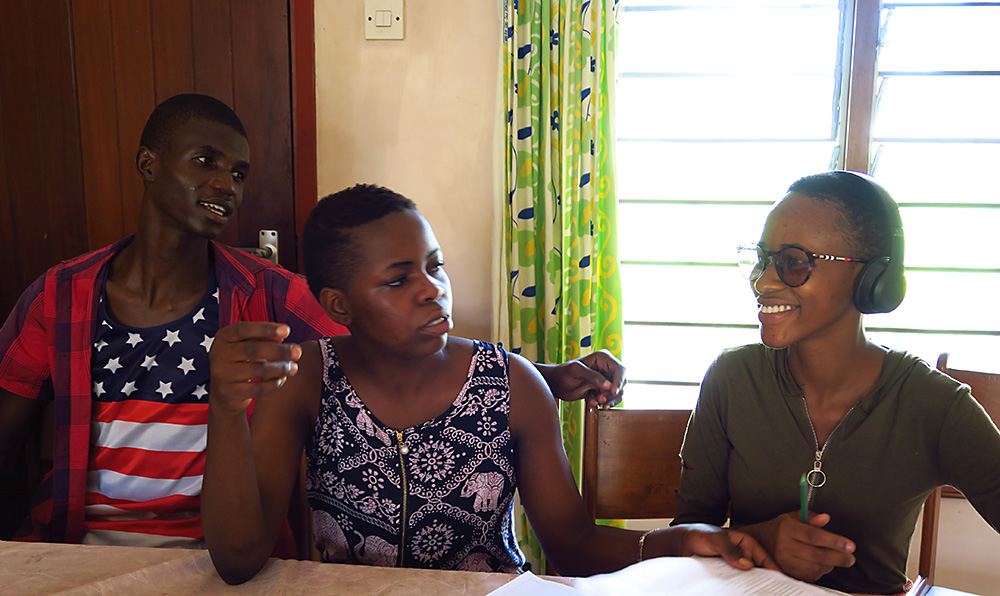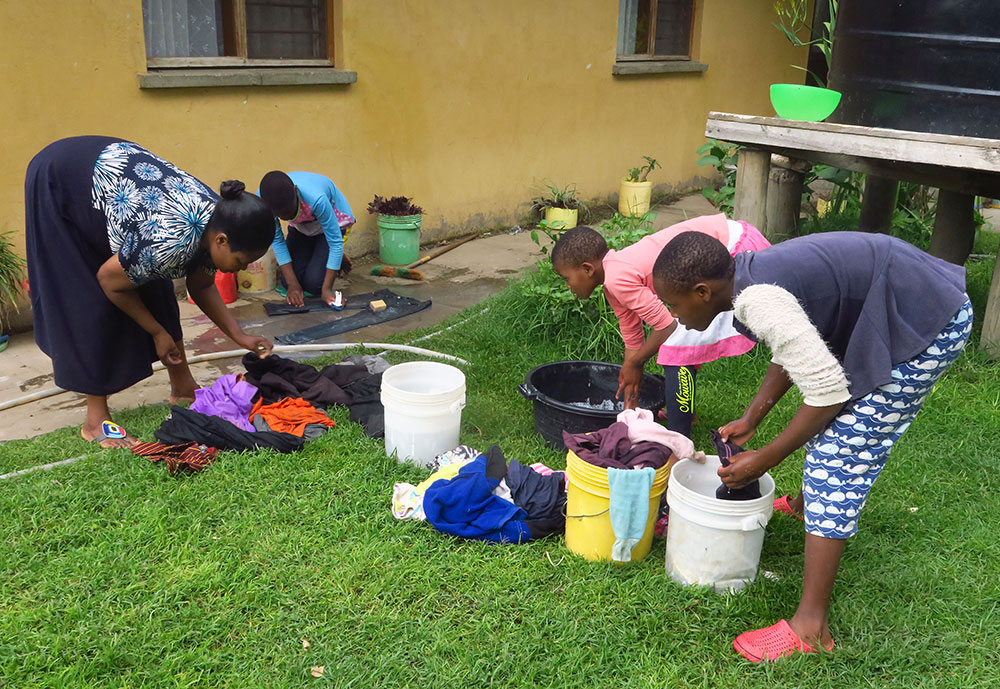Session 14/21
Page 4/7 Starting dialogues about puberty in childhoodStarting open dialogues about puberty in childhood
PREPARING CHILDREN FOR WHAT WILL HAPPEN IN PUBERTY
Children in alternative care often enter puberty earlier than their peers, due to the trauma, neglect and malnourishment they experienced as infants or children. They are in great need of help and guidance from their caregivers when they enter puberty.
One of the most important methods to prepare a child for puberty is to practice open dialogues and talk about puberty some years before it starts. The basis for open dialogues is to exercise confidence and open conversations in childhood. Children must get used to daily conversations about their thoughts and feelings about everyday life: What happened in school, about their friendships, about personal hygiene, etc. This can happen at any time: In an afternoon break, or during the evening meal. This way, children get used to sharing with you, and this is the basis for talking about personal and intimate matters, such as puberty.
You can make teenage life much less difficult if you prepare the child from an early age (8-10 years old) for what to expect when his or her body and mind start to change. Becoming a teenager can be both scary and exciting for children, so it is very important to help them understand how their bodies, emotions, and values will change. This will help them feel much calmer when it happens someday.
In daily conversations, you can describe to the child what will happen to the body, how the views of the other sex might change, and how your relationship might change. This can happen while you work together, have a rest, or perform other activities.
You can also consider having these conversations as family talks with children of all ages. This will make it easier for younger children to understand what adolescence means, and they can learn from the family’s teenagers. Young children often feel that the family’s teenager lost interest in playing with them, and miss the friendship they had. You can explain why a teenager in the family is moody. In these open dialogues, you can create a secure and strong relationship where the child feels that he/she is met with understanding and without prejudice.
Moreover, you can prepare the child for puberty and adulthood by involving him/her in some of your tasks. There are two ways this can be done. Training daily skills, by making the child more and more responsible for daily tasks as it grows. Pay the bills, make a household budget and shop, repair a bike or a car, etc. The other way is to start acting less like a parent, and more like an experienced dialogue partner, who knows about what happens with the body, how to overcome shyness and talk to a girl or boy you like, describe mistakes made by you as a caregiver in your own puberty, how to protect yourself from bad company etc.



WHAT IS IMPORTANT WHEN TALKING TO CHILDREN ABOUT PUBERTY?
In these dialogues, you can use your reflections from the two-by-two interview about your own experiences as a teenager. Children love to hear these stories. What was difficult, and how you managed to become an adult and mature person despite many obstacles. Please emphasize that your teenage years may have been difficult and confusing, but that many problems and worries disappeared when you reached adulthood. This is reassuring for them.
Of course, you will also talk about rules for how to behave in the family. Help the child by talking about teenagers who are doing well because they are strong enough to say no to alcohol, smoking, and engaging in bad company. Also, ask them to give suggestions for house rules you can agree on, so that they learn how to participate and agree actively, instead of just obeying the rules you made.
Perhaps the children will not be interested in learning about puberty at the moment. But they will remember what you talked about, and this will make it easier for them to have confidence in you when they someday become teenagers.
ACTIVITY SUGGESTION: The good conversation
Do you have children who will become teenagers soon? Please make a plan for how you can talk to them about the transition from childhood to adulthood. Here are suggestions, please use your own ideas and make a note of them.
- How can you make your children used to open dialogues from an early age?
- Find one or two stories from your own teenage years about what you experienced, felt, and thought.
- Maybe you have pictures you can show from when you were teenagers?
- You can tell the children about how much their mood can change in puberty, and how one sometimes feels very lonely, and in the next minute very happy.
- Listen and talk to the child about how much the group of peers will mean to them, and that you are going to understand their need to spend much time with them.

